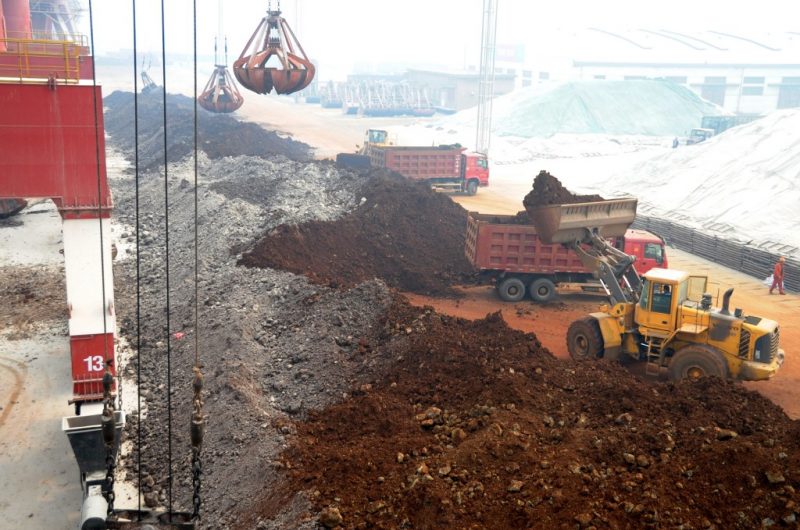China is considering imposing an export ban on “certain rare-earth magnet technology” in retaliation for the US restricting exports of advanced computer chips, according to a report by Nikkei on Thursday.
There has long been speculation of such a move, given China’s dominant role in the production of rare earth elements, as more than two thirds of the global supply of rare earths is processed on the mainland.
Officials at China’s Commerce and Technology ministries announced a plan in December for 43 amendments or additions to the country’s technology restriction act, Nikkei said, noting that some of proposed provisions “would prohibit or limit exports of alloy tech for making high-performance magnets derived from rare earths” and that these changes “are expected to go into force this year.”
ALSO SEE:
US Speaker Meets Taiwan’s Tsai, Keen to Boost Arms Support
Indeed, China suspended exports of rare earths to Japan in 2010 for two years after tension over the Senaku Islands, which Beijing also claims.
That led to Japan expanding its production of high performance magnets, which are used in motors for electric vehicles and many other products, such as wind turbines, cruise missiles and smartphones.
Concern that Beijing would do this again has prompted the United States and allies such as Canada, Australia and Japan to spend many millions of dollars creating their own supply chains of ‘critical minerals’.
One of the main reasons that has not happened already is the fact that processing rare earth is a toxic process that creates wastewater and tailing ponds that leak acids, heavy metals and substances such as cadmium, lead and thorium, a low-level radioactive element, most of which are harmful to human health.
China’s dominance of the rare earths processing stems from its lax environmental standards, which allowed it to produce rare earths at a far cheaper price than any international rivals. Although, there have been signs in recent years of protests over pollution created by rare earth refineries in China and moves by some outfits to operate processing facilities across the southern border in northern Myanmar, particularly since the military overthrew the NLD government led by Aung San Suu Kyi in February 2021.
US developing alternate supply chains
But now, with the US, the Netherlands and now Japan restricting access to advanced chip technology, it is no surprise that Beijing is weighing playing the ‘ace’ card in its hand as a way to undermine or leverage against the West’s chip strategy.
Such a move was foreseen by the US and many others in the mining sector. US Energy Secretary Jennifer Granholm said at the Sydney Energy Forum in July 2022 that Washington was worried that a future conflict could undermine access to natural resources in the way that the Russia-Ukraine war has interrupted oil and gas.
“Our concern is that critical minerals could be as subject or vulnerable to manipulation as we’ve seen in other areas, or weaponisation,” she said, while urging greater integration and effort from mining companies in Australia.
One of those companies, Lynas Corporation won a $120-million contract from the Pentagon in late 2021 to build a processing facility in Texas. Lynas also has the world’s largest processing facility near Kuantan in Malaysia.
Meanwhile, rare earth mines and production facilities are also being launched, revived or considered in Canada, Brazil, Mongolia, India, Vietnam, Myanmar and other countries.
Japan has also promised to ramp up its production of critical minerals as they watch for developments in China.
- Jim Pollard
NOTE: The photo on this report was changed on April 6, 2023.
ALSO SEE:
US, Japan Set to Sign Trade Deal on EV Battery Minerals
Australia Blocks Chinese Investment in Rare Earths Company
Japan, Canada to Build Joint Battery Metals Supply Chain
China Rare Earth Mines ‘Poisoning’ Northern Myanmar – Report
























